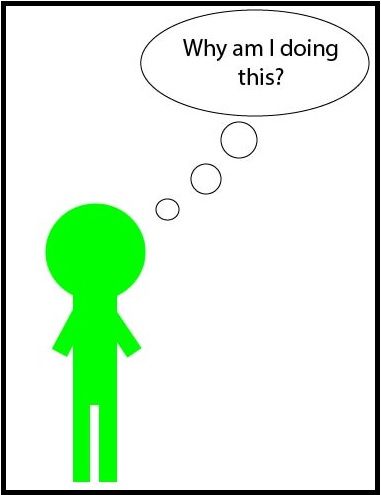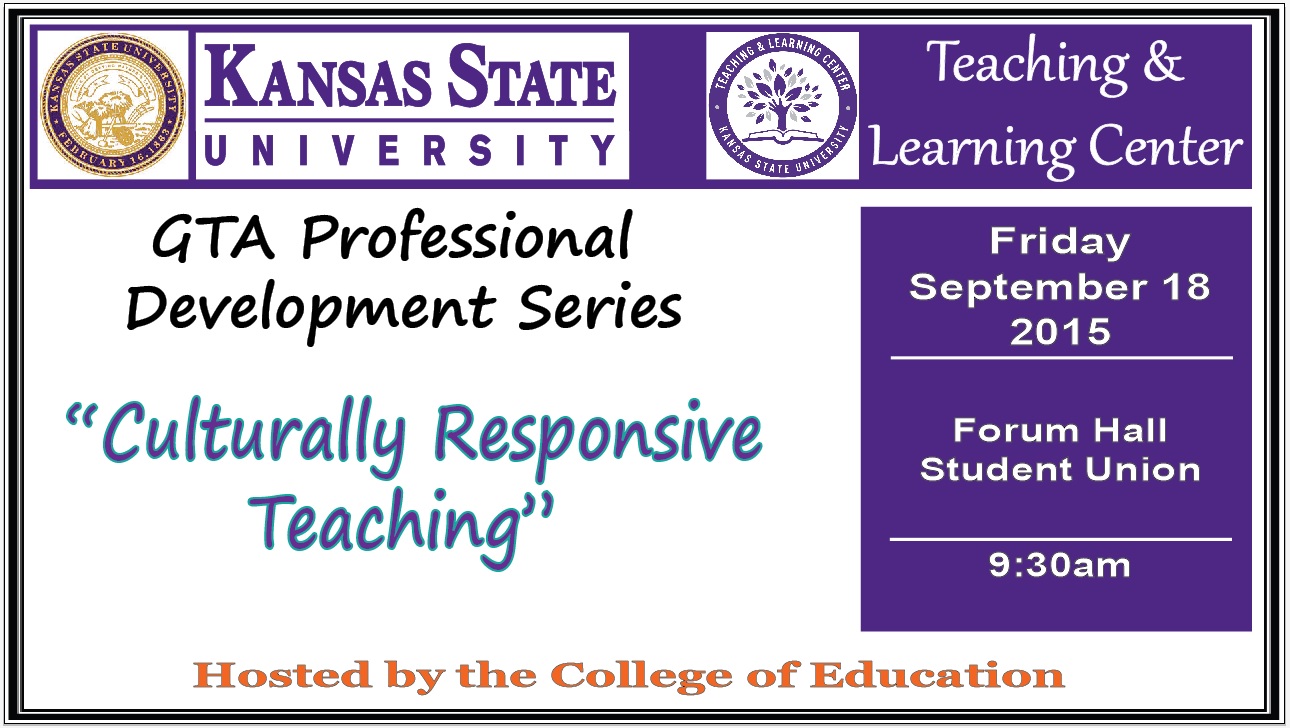Tag: English
GTA-PDS “Teaching Students to Write Well”
GTA – PDS- The Teaching Persona
The Teaching Persona
August 26, 2015
Dr. Jana Fallin Ph.D.
Information from: The 4 Properties of Powerful Teachers by Rob Jenkins published in The Chronicle of Higher Education on April 3, 2015, Volume LSI, Number 29, page A31.
 On our first event of the Fall GTA – Professional Development Series, Dr. Jana Fallin talked about the 4 Ps that the persona who is teaching needs to possess and she gave some advices on how to become a great teacher.
On our first event of the Fall GTA – Professional Development Series, Dr. Jana Fallin talked about the 4 Ps that the persona who is teaching needs to possess and she gave some advices on how to become a great teacher.
-
Personality
What are some traits or characteristics that make teachers great?
Great teachers are…
- Good-natured and approachable
- Professional without being aloof
- Funny
- Demanding without being unkind
- Comfortable in their own skin and natural
- Creative and willing to try something new
You do NOT have to emulate all of these traits. One of the best things about teaching is that our profession is idiosyncratic – we are all different, and that’s okay!
Do NOT try to be something that you’re not.
Focus on your positive traits and practice some of these other traits as you see fit.
-
Presence
How can we practice “owning” the room?
Presence is the ability to make students feel at ease in your classroom. Presence is something that we can work on but that takes practice.
You can start practicing by observing other teachers in the classroom. Take notes about things that work well and things that need improvement. Pay special attention to what the STUDENTS are doing as you observe the classroom.
- Practice makes perfect, so try to practice your presentation skills as much as possible – presenting your research in front of your colleagues and/or asking a faculty member if you can guest lecture is a great way to establish your “presence.”
- NEVER just go through the motions. If you are teaching a class for the first time or for the 20th time, make sure you are mindful of your presence.
- Think about videotaping your lectures. It can be painful to watch yourself on video, BUT it can be one of the most helpful ways for you to see how you can improve your presence.
-
Preparation
What does it look when YOU prepare for class?
- You will not always be teaching a subject that you are an “expert in.” As such, preparation is key to being an effective teacher.
- Think of techniques to get students involved with their learning. As you prepare, keep in mind that learning is messy and that is okay. You want to give your students opportunities (e.g., low risk assignments) to take risks and in some cases fail. Failure can be an important learning opportunity.
- When students know that you care about what they think and that you want to help them to succeed, this will motivate them to get more involved with their learning.
- Think about the structure of your class and make sure that you implement this structure and consistency. Structure for your class can be things as simple as showing up early for class each day and/or making details about assignments available ahead of time for students etc. The more your students see you are prepared and want them to succeed, the more likely they are to get involved with their learning.
- Prepare for class by acknowledging that you are NOT the “keeper” of knowledge. Instead you are the “facilitator” of knowledge.
-
Passion
Do you love your subject matter AND your students?
This might be the most powerful and important of all qualities.
- NEVER talk about students in a demeaning and disrespectful way. Sure, there will be times when you get frustrated with your students and you need to vent, but make sure at the end of your venting session you brainstorm solutions to the problem(s).
- If students are coming to class late you can vent about how frustrating that is with a colleague, BUT how might you solve this problem? Maybe talk to the tardy student(s) and/or implement a late policy.
- Constantly complaining without brainstorming solutions to the problems will only create hostility between you and your students – hostility and negativity toward your students ≠ powerful/effective teaching.
Good beginning of Semester
Wishing all K-State community have a good beginning of Semester
It is always important for instructors to have some training resources in case you forget something. A good tool to have on hand is an Online course in the use of Canvas. In addition, if you would like more training opportunities, Information Technology IT offers a great training schedule for that, taking into account that all K-State courses need to be upgraded to K-State Online powered by Canvas by Dec. 31.
Most of the professors take for granted that all students know how to access the online class and that is not truth. Some students would need some help or communication to access their courses. It is not fair that when your other classmates are one big step forward accomplishing the readings, getting the power point presentations on all the other resources available for the class, some students do not know how to access the online course or that it even existed. Therefore, this is a good tool to access your courses in K-State and for additional help step by step instructions are also provided.
Something very useful to know is also that all K-State community can get advantage of some free IT resources for our electronic devices, like for example a free copy of Microsoft Office for our personal use. Isn’t it wonderful? Take advantage of all these resources to start this new semester right.
GTA Training
GTA – PDS- The Teaching Persona
Join us today for the GTA Professional Development Series at Hemisphere Room- Hale Library.
Why do you evaluate?
 Besides it is an institutional requirement, I evaluate to check how well my students are understanding and learning what I am teaching, I evaluate to check if I am explaining and teaching correctly and enough for students to learn, and I evaluate to get information to improve teaching and learning.
Besides it is an institutional requirement, I evaluate to check how well my students are understanding and learning what I am teaching, I evaluate to check if I am explaining and teaching correctly and enough for students to learn, and I evaluate to get information to improve teaching and learning.
I use Assessment and Evaluation as an ongoing process, this is during the whole course.
What about you?
-
Why do you evaluate?
-
How do you evaluate?
-
What do you consider a Fair Evaluation?
-
Which kinds of Evaluation and Assessment do you use?
Why Teach?
 I teach because I want to help my students to learn, I teach because I want to guide my students to become independent learners, I want they learn to learn. I also teach because I want to make a positive impact on my students’ lives, and especially I teach because I want to make a difference on their lives, a difference on the Education of my country and consequently to make a difference in the world. Because I consider Education is the engine of human, social, technological and economic progress and development.
I teach because I want to help my students to learn, I teach because I want to guide my students to become independent learners, I want they learn to learn. I also teach because I want to make a positive impact on my students’ lives, and especially I teach because I want to make a difference on their lives, a difference on the Education of my country and consequently to make a difference in the world. Because I consider Education is the engine of human, social, technological and economic progress and development.
This is an important questions all Instructors should answer themselves. There can be diplomatic reasons, social needs, job opportunities, salaries and benefits, etc.
What is your answer?
Why Teach?
2nd Annual Big XII Teaching and Learning Conference
I am very excited for having the opportunity to participate in the
2nd Annual Big XII Teaching and Learning Conference
At Oklahoma State University, on July 30th & 31st, 2015.
Without doubt it will be an unforgettable experience.






Recent Comments